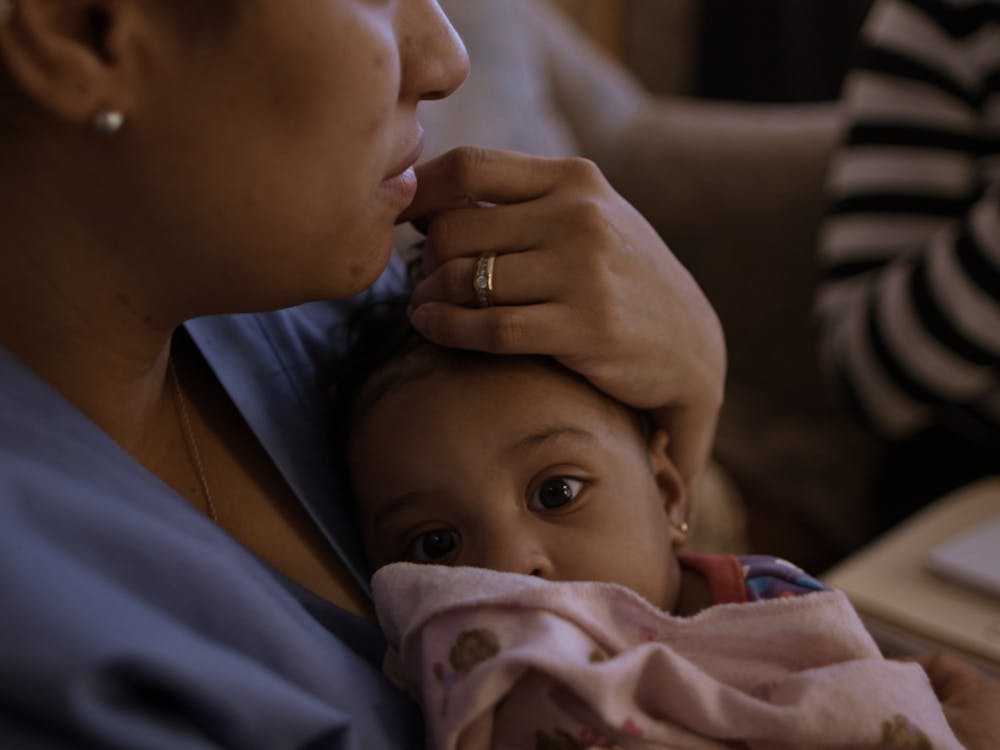“We all like to think of childhood as this time of joy and innocence. But for many of us, it’s just not true.”
Those are the opening lines of the trailer for “Resilience: The Biology of Stress and the Science of Hopes,” a documentary that discusses the biological dangers of childhood abuse and neglect, which have been linked to everything from depression and substance abuse to cancer and heart disease. The documentary, screened at the 2016 Sundance Film Festival, promotes trauma therapies and research-based methods to protect vulnerable children from toxic stress. The first local showing was held in the auditorium of the Duke Regional Hospital in November of 2017.
The screenings are sponsored by the Duke Division of Community Health, which is housed in the Department of Family Medicine and Community Health in the School of Medicine, and have been a continuous effort led by Fred Johnson, vice chief of the division. Johnson regularly shows the documentary to professional and public audiences alike, and he spoke about his excitement after seeing the film for the first time.
“I drank the Kool-Aid, like, oh my God, people need to know this,” Johnson said. “That’s part of the theme of the movie — general awareness of the impact of Adverse Childhood Experiences.”
Adverse Childhood Experiences, or ACEs, are trauma-inducing events that occur during childhood (0-17 years) that can undermine a child’s sense of stability and stability. Common triggers include witnessing or experience violence, substance abuse and parental absence.
Immediately after watching the film, Johnson helped form a county committee and began organizing screenings in Durham and the Duke community. The screenings were well-received as the audience grew larger every year and even wanted to host their own showings in churches and community groups.
The Division of Community Health, since learning about the implications of Adverse Childhood Experiences, has worked to address these issues in the healthcare system.
“A big issue in the movie is that many clinicians were totally unaware of this study, so we began organizing Grand Rounds in the School of Medicine over the last 18 months,” Johnson said.
Grand Rounds are a customary component of medical education where new and timely research in medicine can be disseminated to faculty and trainees. Duke Hospital conducts weekly Grand Rounds, and they are just part of the Division’s movement to fight against the fallout of childhood abuse.
In order to implement a comprehensive approach to fighting toxic stress, the Division also aims to connect with educators and school systems.
“One of the things that struck us, and it’s really clear in the documentary, is that there is a concern that we may be overdiagnosing ADHD, and we wanted to get it [the documentary] out in the schools to educate teachers that there might be something else going on,” Johnson said.
Johnson also discussed the relevance of “Resilience” to students on Duke’s campus — or any college campus. According to Johnson, attendees at a screening took a trauma questionnaire, and 35% of respondents averaged three or more of the 10 trauma points checked. The high proportion of respondents with exposure to toxic stress has galvanized Johnson to continue promoting the message and science behind “Resilience.”
“You wonder, is your student counseling system trauma-informed?” Johnson said. “It’s an opportunity for student services to have a perspective on students’ anxiety levels and other factors going on in their lives besides exams and papers. For students, knowing you’re not alone is always the beginning of resolving or addressing it.”
Documentaries like “Resilience” show the power that lies at the intersection between the arts and the sciences in advancing society and addressing its deepest issues. As Johnson put it, “there is a very simple approach to trauma-informed care, and it changes the lens. It’s not what’s wrong with you, it’s what’s happened to you.”
“Resilience” will be shown Feb. 13 and March 12 from 5:30 to 7 p.m. at the Duke Diet and Fitness Center.
Correction: This article has been updated to include where the Duke Division of Community Health is housed. The Chronicle regrets the error.
Get The Chronicle straight to your inbox
Signup for our weekly newsletter. Cancel at any time.

